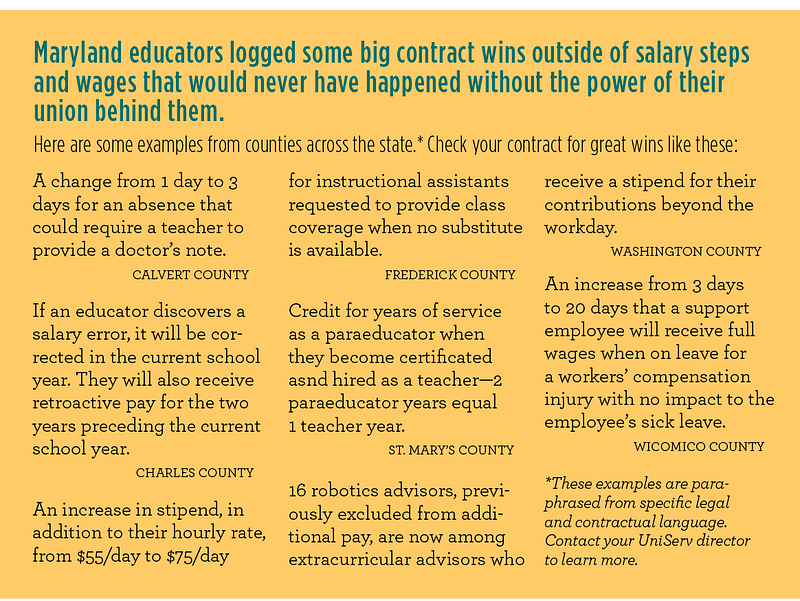Who Decides What’s on the Bargaining Table?
You and your fellow union members.

Educators know they have some basic rights thanks to the contract negotiated by their local association bargaining team. Salary and wages, health and life insurance, sick leave and sick leave banks, retiree health care provisions, and more are, in fact, mandatory subjects of bargaining.
Your local association brings those and other issues — ones imposed by the local board of education that are unfair or just plain ridiculous — to the bargaining table (as long as they are a permissive subject of bargaining under Maryland law) when it’s time for negotiations with your school board.
Would members have won the benefits below without working together as one for a common goal? The answer is simple. No.

Each time a contract comes up for negotiation, your local association leaders, bargaining committee, and MSEA UniServ staff assess the lay of the land. What are members saying? Where are wages and salaries compared with the rest of the state? What issues have come up under the current contract that need to be fine-tuned?
How Can You Get an Issue on the Table?
Unions are strong when they’re a true democracy. Your job is to reach out, share your thoughts, and call your local association with ideas and suggestions.
Share the experiences you’ve had that were unable to be resolved — you may find resolution through bargaining for you and others who share your concerns.
You’ll also have an opportunity to speak out in a pre-bargaining survey, at a membership meeting, or in a conversation with a bargaining team member or your school rep.
The bottom line is YOU decide the issues. Through your individual input and surveys, bargaining teams begin to determine where employee concerns or dissatisfaction lie and can start to build a bargaining agenda based on member feedback.

